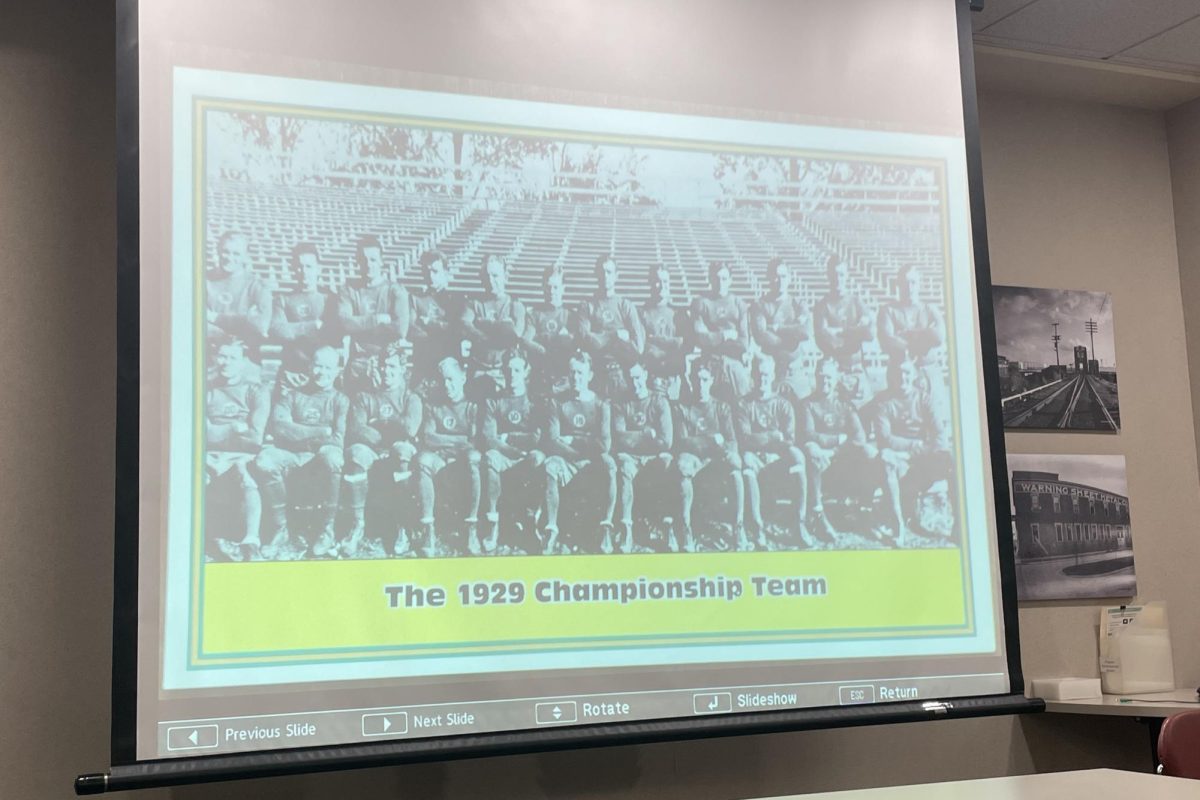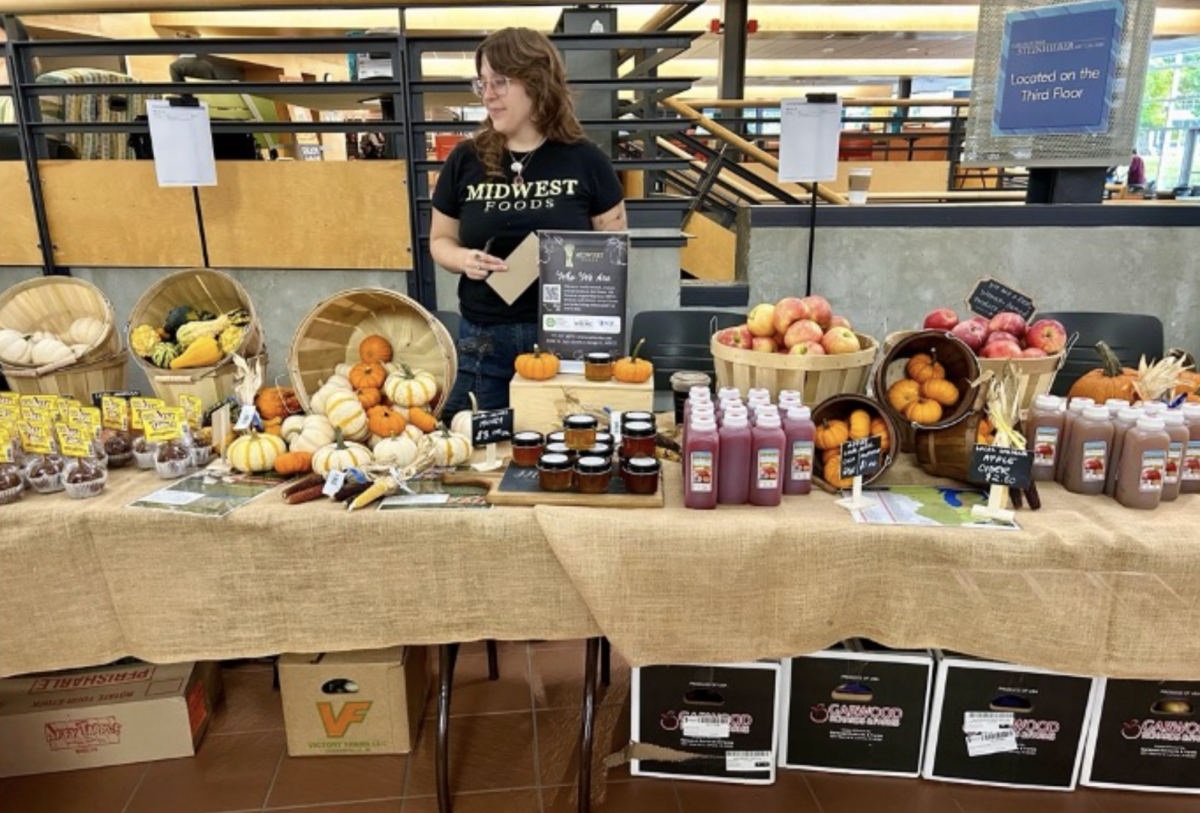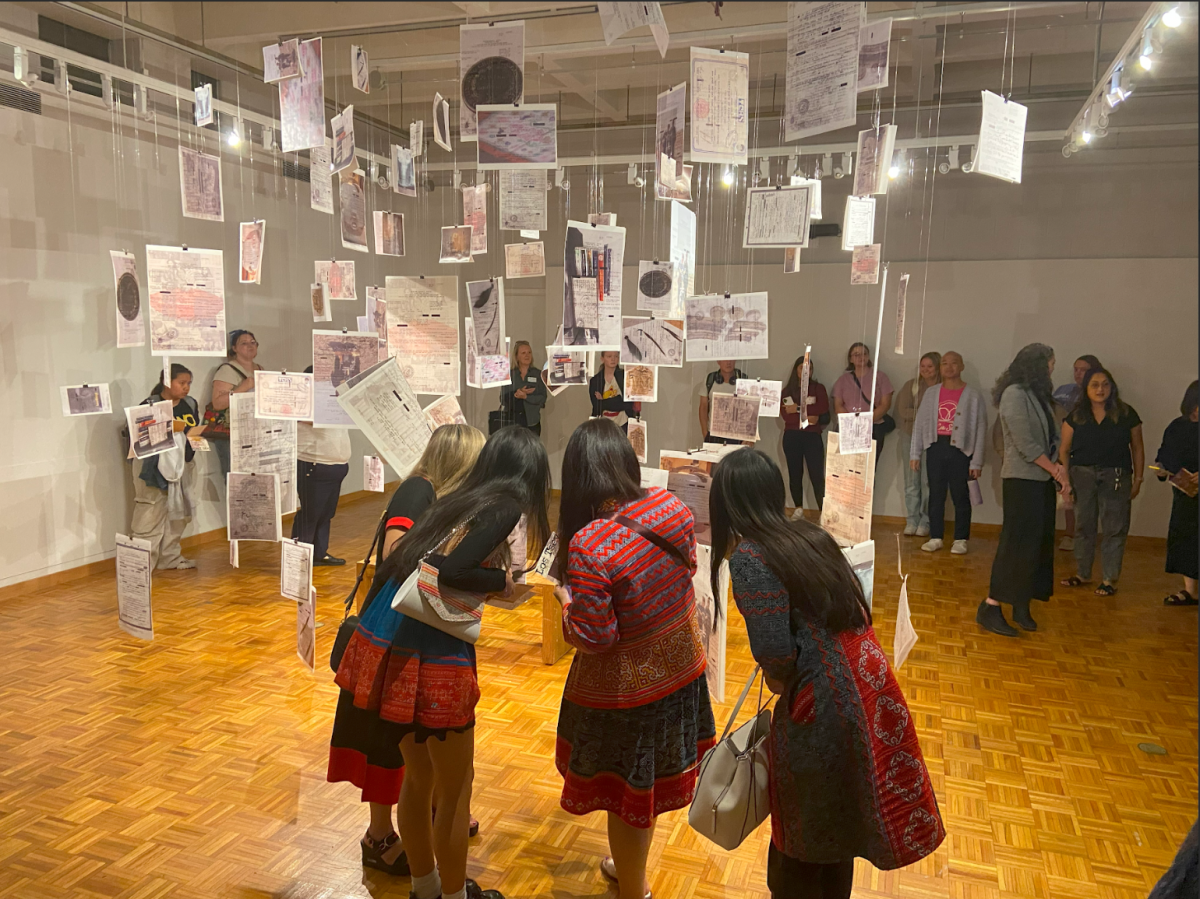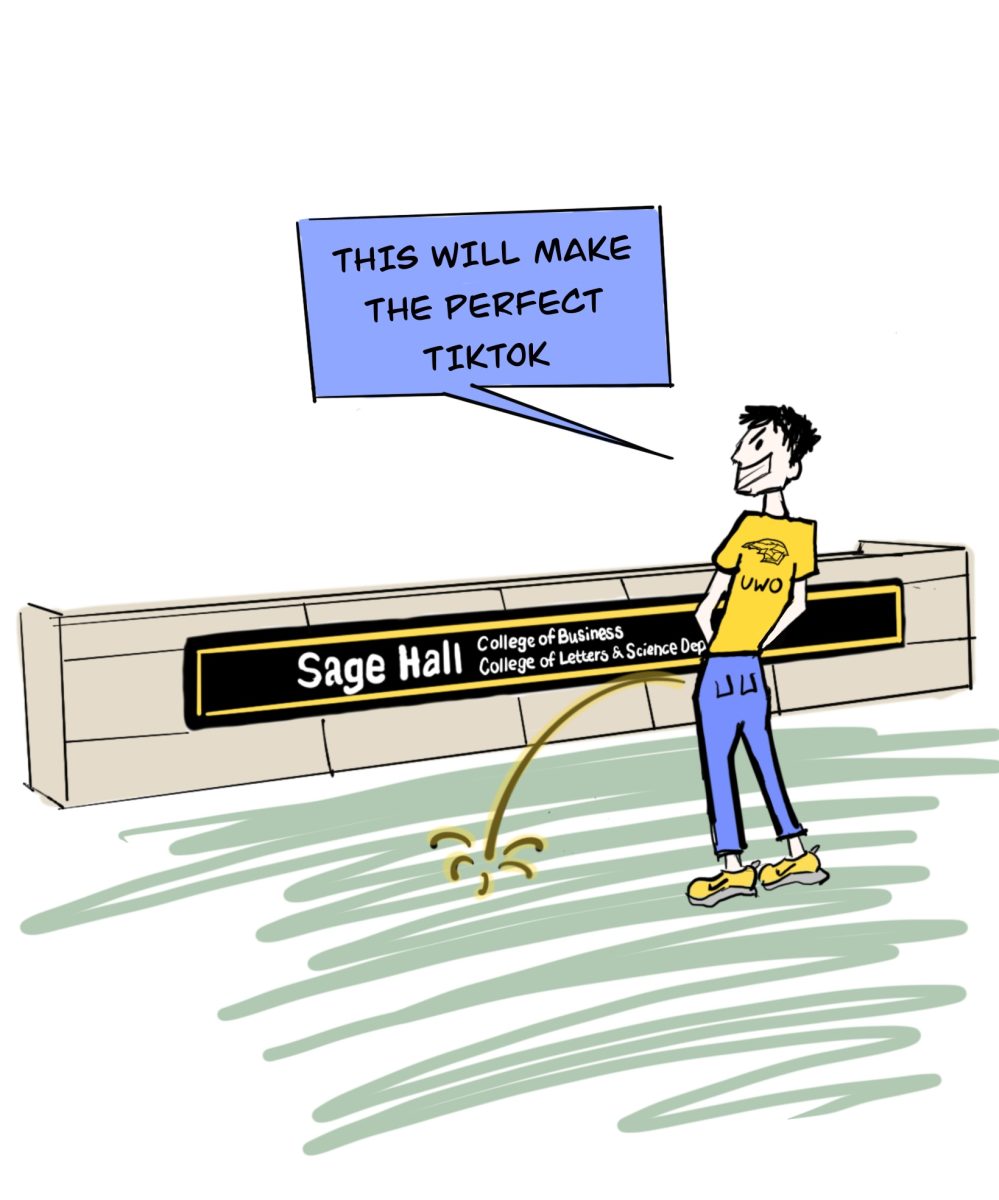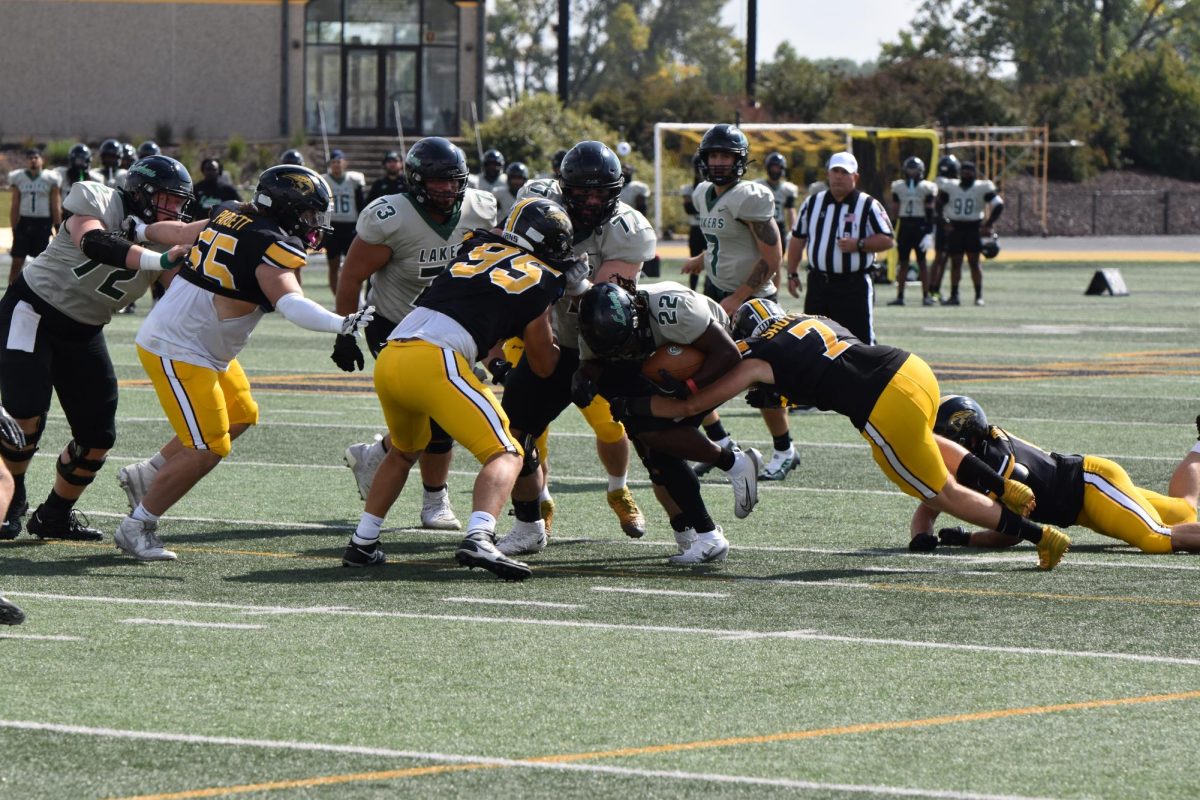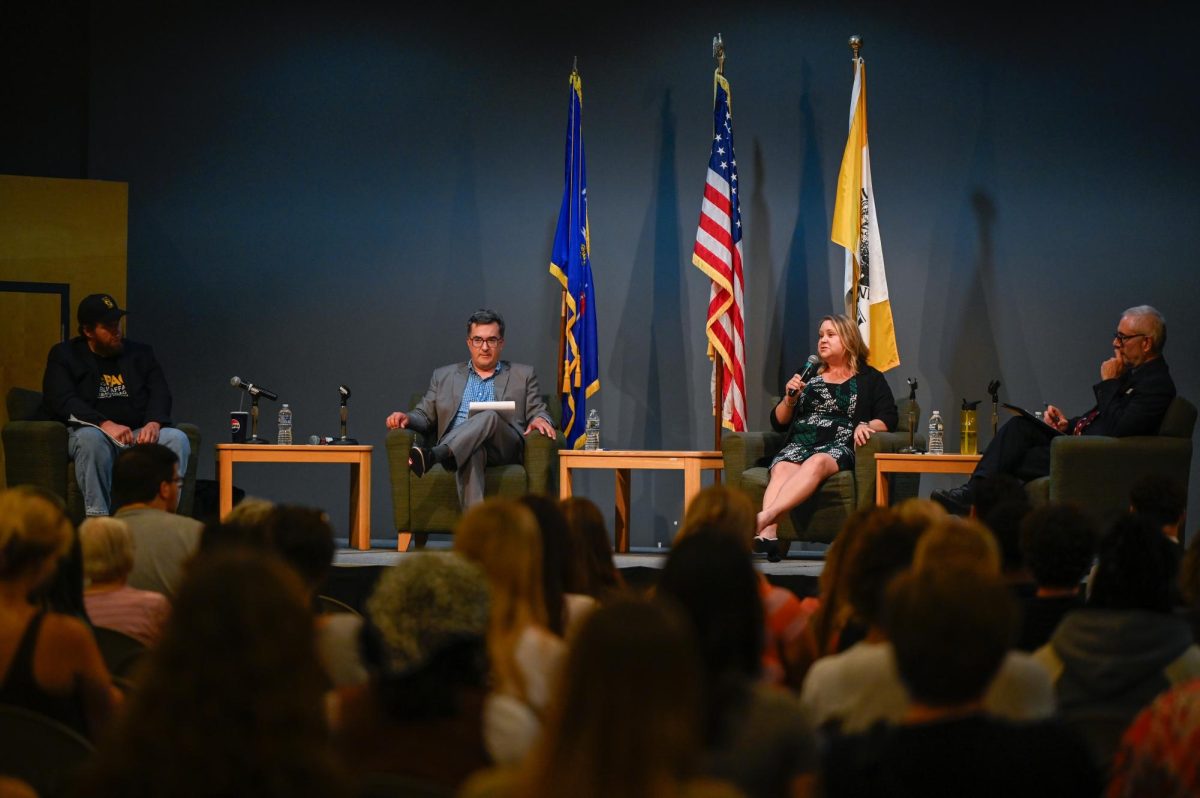Views about the implementation of artificial intelligence in the music industry differ among artists, but independent musicians at UW Oshkosh feel as though such technology could do more harm than good in terms of their own discography.
Chris Jewson, a music industry student at UWO, said that AI will never be able to fully replace humans in the studio or on stage.
“Human musicians should always be part of the musical process,” Jewson said. “You can recreate the sound of a musician’s performance through audio recordings, but you can’t recreate someone like Elton John’s playing.”
In recent years, the use of AI has become more prominent in media production, going as far as to influence music development in terms of both vocals and instrumentals.
A 2023 survey conducted by music distribution company Ditto Music found that 60% of independent artists are already incorporating the use of AI into their work, and that number is only increasing.
On March 21, Tennessee Gov. Bill Lee signed an updated bill called the ELVIS Act, or the Ensuring Likeness, Voice and Image Security Act, in order to protect artists and their voices against unauthorized use through AI. Though this bill has been passed, this does not stop willing participants throughout the country from testing the waters of AI software in their own productions.
Boston Gies, a senior majoring in music industry, said that the human aspect of music creation could be lost through the creative process when using AI.
“I’ve known people who’ve used AI for lyrics,” Gies said. “Especially with ChatGPT, I feel like it’s just going to take away the human touch and crafty side of making music.”
Gies, who has been producing electronic music since 2019, said that while artists themselves may be directly impacted by the use of this technology, other fields of music production could also suffer.
“It’s scary that people might lose their jobs,” Gies said. “People might not have the creative space of being a musician, being a producer, being a mixer, and even the job of doing the cover art might be in jeopardy.”
Jewson said that something as powerful as AI could eliminate jobs for engineers, which he has seen happen among his peers.
“One of my best friends just informed me that instead of contacting a mastering engineer, he used an AI mastering program to master a selection of his songs,” Jewson said. “I was shocked by this because this is one of my most musically critical friends, so it makes me wonder how complacent music fans will become to AI-quality music and whether AI-quality music has the potential to be better than a human’s.”
Jewson, an independent musician who has been crafting music since he was eight, said that his views on AI in music are pessimistic, and he sees its employment as a vessel used to copy rather than create.
“I have more often than not seen its ability to recreate others rather than allow creators to expand their own palettes,” Jewson said. “AI relies on already existing content, whether that be through written music or audio recordings. There are already thousands, if not millions, of examples of AI-generated songs ‘in the style of’ popular artists. When looking for producers or artists to work with, it is rather difficult to determine what is newly-created versus AI-generated.”
Alyssa Proell, a music industry and audio production graduate, said that the use of AI could potentially strip away any emotional appeal from music.
“People are always searching for authenticity and relatability in music,” Proell said. “And if music becomes all AI, there won’t be anything completely raw and original anymore.”
Proell, a singer-songwriter who has performed at many venues including UWO’s ByeGosh Fest, said that while AI could potentially take over the production side of music, live performances should always be led by humans.
“A hologram performed at Coachella this past weekend, which was very strange, because people will want to see a live person on stage,” Proell said. “Performances are a huge part of being a musician, and that shouldn’t be replaced by AI, even though it could be.”
In terms of the future, Jewson said that while music could be enhanced with the power of AI, it is too early to be certain.
“I believe that if used properly, it has the potential to enhance musical production,” Jewson said. “I am hopeful that the human element in the creative process will outlive AI-generated elements, but I am fearful of AI’s unknowns.”
Gies said that while people should be open to the idea of integrating AI into the music world, musicians should consider the consequences before they do.
“I want to make sure that I’m not supporting something that’s going to bite me in the butt in the future,” Gies said. “I hope that all musicians give it some thought and don’t completely integrate it right away. We have to think through this, and consider the ramifications of replacing humans.”




